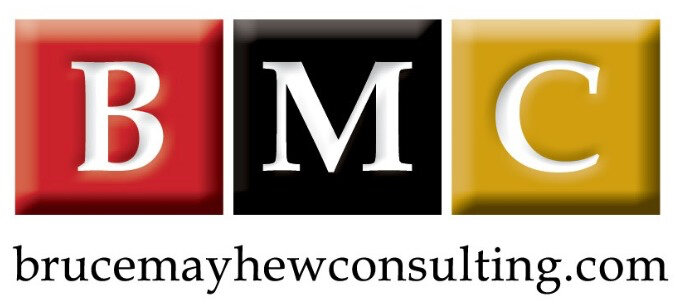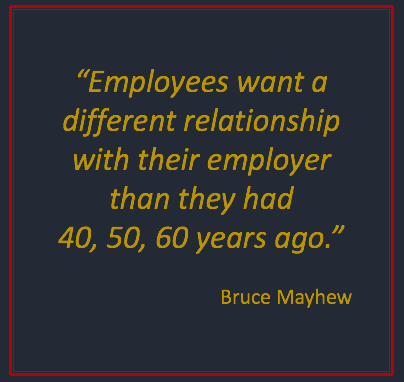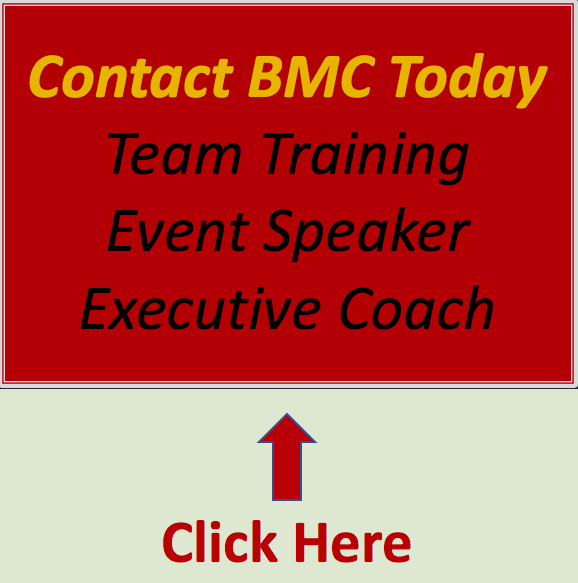How To Keep Your Team Inspired And Proud Of Their Contribution
/More and more people are working from home and feeling isolated, disconnected and even forgotten. And, whether we realize it or not even those of us who love working from home and are thrilled to not have to deal with the commute, expensive food-court coffee and ‘office politics’ are almost certainly missing some of the brainstorming, creativity, information sharing and learning that routinely and often informally (and formally) happens when we are in an office together.
The net result of the isolation and disconnect we feel is that as time goes by we begin feeling less motivated and less excited about our work. Sure, we know we are working hard in our newly fashioned home office or the dining room table, but as we sit alone we begin to silently wonder, “Am I really making a difference, is my effort relevant / important and does my boss see the value I bring to the team?”
This is where we as leaders need to make sure we are doing right by the people we are responsible for… and frankly… are by extension doing right for ourselves and the organization we serve. This is where we as leaders have to make sure that whether people are working in an office or at home that they are recognized for the contribution they are providing, especially if they have had to relocate (due to COVID-19 or a new company-wide directive) and working from home is not their choice.
So as leaders, I offer you the three ways how to keep your team inspired and proud of their contribution.
Task 1. Let Others Lead
Just because we are a leader it doesn’t mean we have to lead every project. This is a common trap many leaders, especially new leaders fall into. Sadly, they also often feel burnt-out because of it.
It’s important leaders show our employees we trust them and give them confidence they have what it takes to run a project or a team meeting. Perhaps we don’t even go to the meeting but instead get updates from the person who is the lead. Another thing we can do is try to go a whole meeting without talking – except perhaps to give others encouragement for good ideas or for making good points. One of the most demoralizing things we can do as a leader is to always be the person who always makes the first and last point.
Task 2. Recognize Contribution
Make sure our team members (and our teams) know their contributions are being noticed… and appreciated / respected. Make sure they know they are making a difference and that their work – their contribution has purpose. Because we are working remotely, when we are on a video call and one of our team makes a good point or adds to the conversation – say, “Patrick, that is a good point” or“I agree with Margaret”. Recognizing someone’s contribution or effort doesn’t mean there has to be a big celebration, it can be really simple, and sometimes simple is the best and feels the most sincere.
If our top talent is not getting the recognition they deserve, we can’t be surprised when they start quitting or looking to be transferred to another department. This is a serious challenge because good talent islikelydifficult and costly to replace and retrain. This is doubly unfortunate since saying “Patrick, that is a good point” or“I agree with Margaret” doesn’t cost a cent and has looong lasting value.
Task 3. Every Employee Is Unique
Recognize everyone is different. We can’t motivate and reward people the same way we want to be rewarded. And, if we have two people doing the same job, don’t be surprised they have completely different motivation and recognition needs from each other. We know this is true, especially if we have children or siblings. It is totally common for siblings to have very different needs – and they grew up in the same household.If you are a parent ask yourself “Are they motivated by and interested in the same things?”My guess is no.
Need more convincing? With four generations in the workforce it is highly likely that some of our team may be single and newly out of school while others may be having their first child and / or buying their first house. Some may be sending their kids away to university while others may suddenly need to manage a sick partner or aging parents. Now more than ever, we are recognizing different people have different needs and those needs may change completely next week.
The only way we are going to be able to keep your team inspired and proud of their contribution (while building trust, improving performance and employee retention) is to get to know each of our team. We do this by having one-on-one status meetings with each employee at least once a month, or better yet, every two weeks along with our regular team meetings.
Imagine how an employee is going to feel when we take the time to get to know. As I said earlier, this will inspire most employees with greater – longer-felt results than a monetary bonus.
Conclusion.
To keep your team inspired and proud of their contribution, leaders have to always balance the corporate needs with their employees personal and professional needs (and fears); always! Inspiring their team starts with getting very familiar with the company values because these are the values and behaviours we want people to demonstrate.
If we are starting to build our team from scratch, we have to be sure we hire people who demonstrate those values as well as the strategic competencies we are looking for. My opinion, weigh those values as high or higher than tactical competencies. Skills are often far easier to teach than values… unfortunately, in the past business has mostly hired for skill not values and therefore cultural fit. Then, once we have hired the right people, reward those values regularly.
If we are working with an existing team, our goal has to be to encourage them to bring out those values in every aspect of their work. This may mean we have to change our corporate culture to reward and inspire often and in real-time. An equally important part will be to encourage our team to reward each other. Praise and inspiration should not only come from us – it needs to become a regular part of the corporate / team culture.
Earlier I discussed one-on-one meetings. When you are having one-on-one meetings with your employees, two questions you can ask them to get a better idea of what is important to them and what their motivators are can be:
Looking into the next month, what would you like to get better at and how can I help you?
Is there a project that interests you that we may be able to include you on or do you have a special project you have in mind that we may be able to include in your objectives?
This will usually help employees be more engaged, self-motivated and as a result, more productive.
Thank you for reading. I hope you have enjoyed.
Bruce
About Bruce and Bruce Mayhew Consulting.
Bruce is Corporate Trainer and Executive Coach.
As a Corporate Trainer Bruce Mayhew (of BMC) specialize in customized Time Management Training, Email Etiquette Training, Leadership & New Leadership Development, Generational Differences and other soft skills training solutions in Toronto and across Canada. Bruce is also an Executive Coach to a few select clients.
BMC helps your greatest assets think productive and be productive.
Bruce is an experienced motivational speaker in Toronto and has inspired audiences across Canada and within the USA and the UK. Bruce works hard to always make sure your training event, conference, retreat, or annual general meeting is a success.







